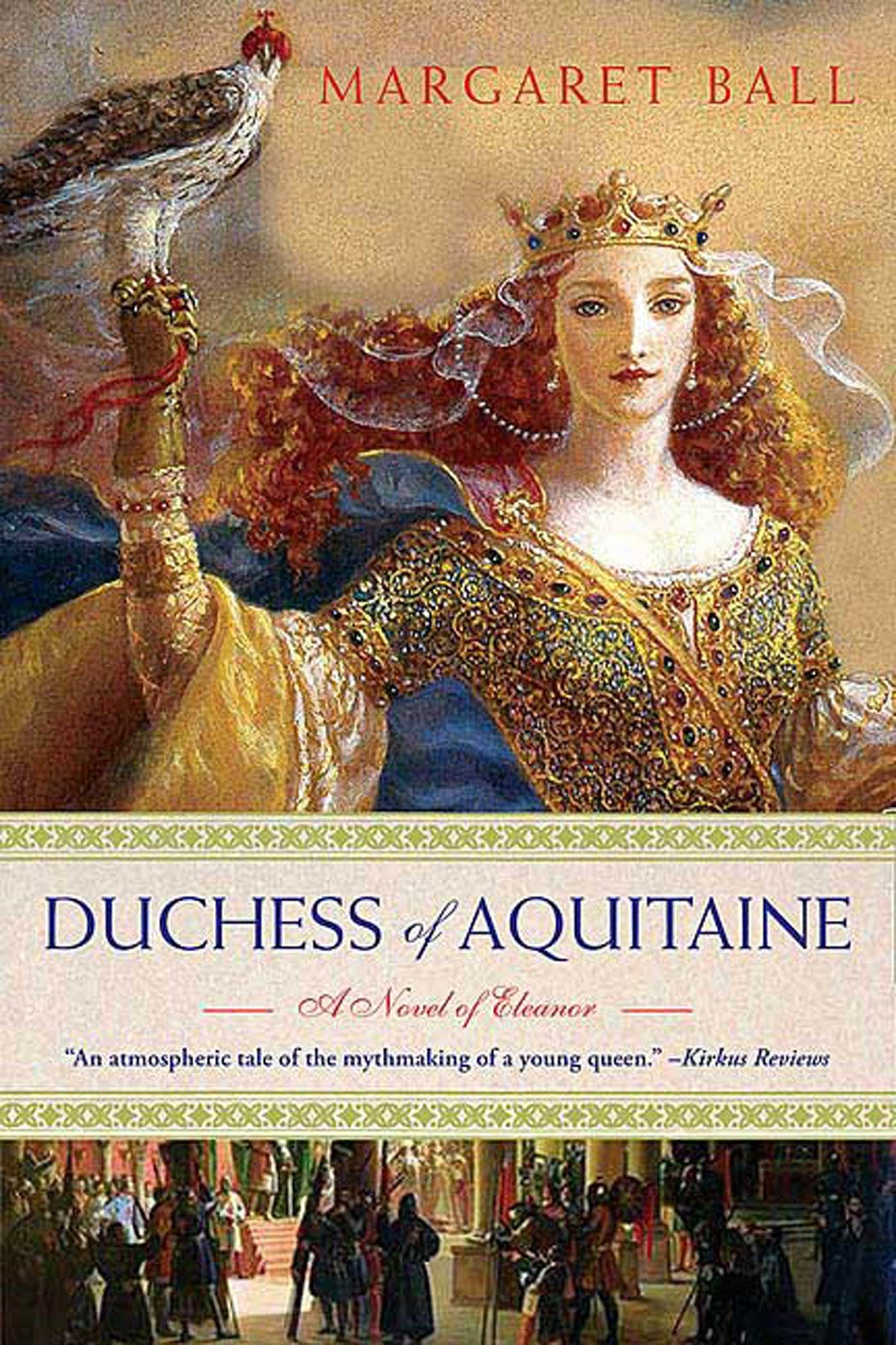Duchess of Aquitaine
ISBN: 978-0312205331 
Sometimes, one can listen to a piece of music they have never heard and realize that something is discordant with the composition. Whether it be a new work, or an old re-interpretation, something just feels “off”–like the thumbprint of the original author is indelibly stamped on what should have been and the “mortal instrument” that does the rendering is lacking in properly conveying the intent. This feeling, which probably is best characterized as malaise, is present for the entire reading of this work. For one thing, the character of the work is about Eleanor of Aquitaine’s own malaise toward her marriage and duties. However, on a more immediate level there is a malaise that sometimes “Historical Fiction” induces in those who are familiar with the period and characters present in a given work. This “malaise” concerns itself with a certain noxious leakage of what would be termed a “rabid, modern liberalism” that tries to pass itself off as feminism.
While it is doubtless the case that many women did not have “great lives” concerning men and how they interacted with them in the Middle Ages–it does a disservice to women who also had ambition and drive as well as intellect that existed in those times to try to douse a given work with pagan feminist ideals from a modern vantage point. This is admixed with some more traditional “conservative” views of women who, at the core, want to find loving relationships–Queen or no.
This novel would have Eleanor have an affair with the Emperor of Constantinople, who, surprise, is serving the pagan God of Eros. Keep in mind that Eleanor of Aquitaine is the very same Queen, who with her husband Louis VII, went on a disastrous crusade to the Holy Land in an attempt to once again drive out the “infidels”.
The novel is billed as a romance, and so one suspects that most of the target audience will likely be women who are University educated–perhaps professors–and so maybe in order to help sell the book to these “smart-modern-women” the publisher leaned on the author and suggested large doses of modern heathenism to help pander to this market segment.
If anything, the Middle Ages, particularly those going on Crusades therein, were marked by a quest for piety. While infidelities and other unpleasantness surely happened, it is almost certainly not the case that those who went to the Holy Land were occupied with pagan Gods. If anything, they were saturated with an almost Messianic zeal for the land and the kingdom of Jerusalem as they saw and understood it. To convince a number of people to go into a land of “barbarians” requires some other belief than that of pagan Gods. One could do that and stay at home and as long as one was quiet about it–risking neither life nor limb.
This work then makes Eleanor feel like some kind of robot that the author decides to stick words into to make for good reading. Yes, there are facts in here. No, I doubt that Eleanor and Louis divorced on any other grounds than the lack of having any male offspring. Bad marriages, even royal ones, more often ended in death than divorces during the period. Rather, some key mojo was not working between Eleanor and Louis, and more than likely combined with the consanguinity argument there was a divine one as well–it seemed that God was not smiling on their relationship for the good not only of themselves but for the Kingdom itself. Therefore, their marriage was annulled.
Sure, historically here were rumors about Eleanor and her uncle, but almost any court had rumors and scandals and gossip–most of which proves to be untrue and hides the intrigues of someone else within the court who–having spent little coin to start such a rumor–lose little in the making of the wretched piece of mischief and gain seeing a King or Queen have to bow under the untruth of their words. The small in stature have done this to those in power for quite some time, and it therefore is not unusual to see it present in Eleanor’s time.
It was hard to read this work, since one must mute a small, silent voice in their head the entire time that suggests “most of this is untrue of this person”. Rather, one is reading about an idea that someone has concerning the ideas another person thought interpreted through a time quite distant with an immense amount of modernism brimming in the prose to try to ultimately sell copies of a book. It does little to hide these agendas, or check these impulses. Really, by the end we are almost as relieved as Eleanor that they have her off marrying Henry the II if for no other reason than that is where this book ends.
